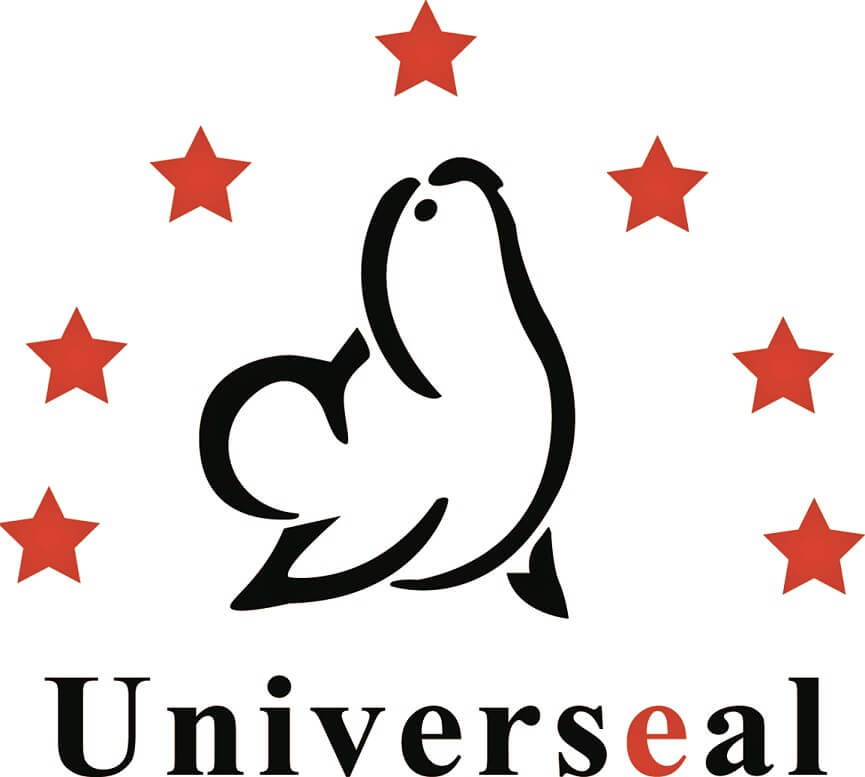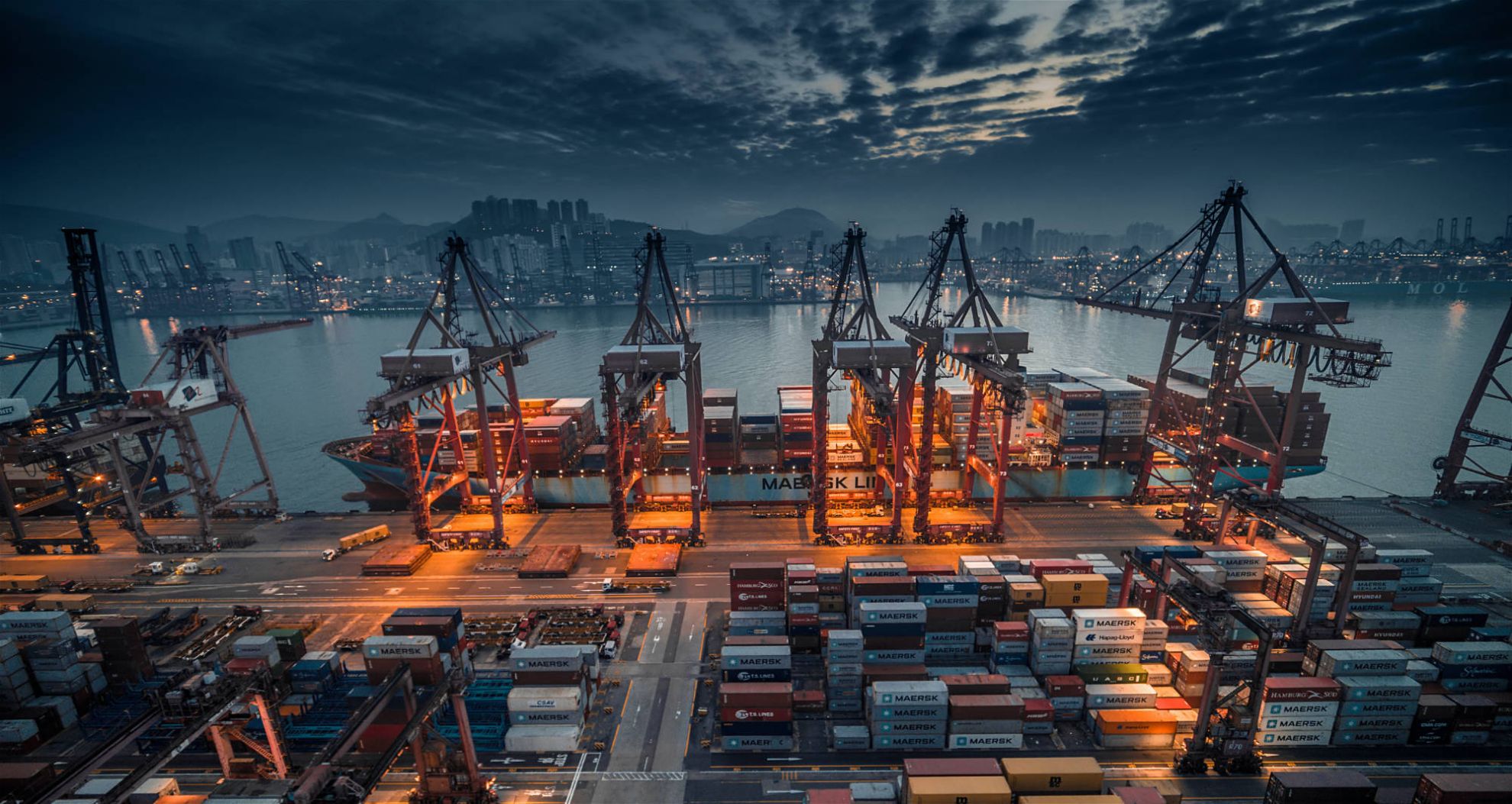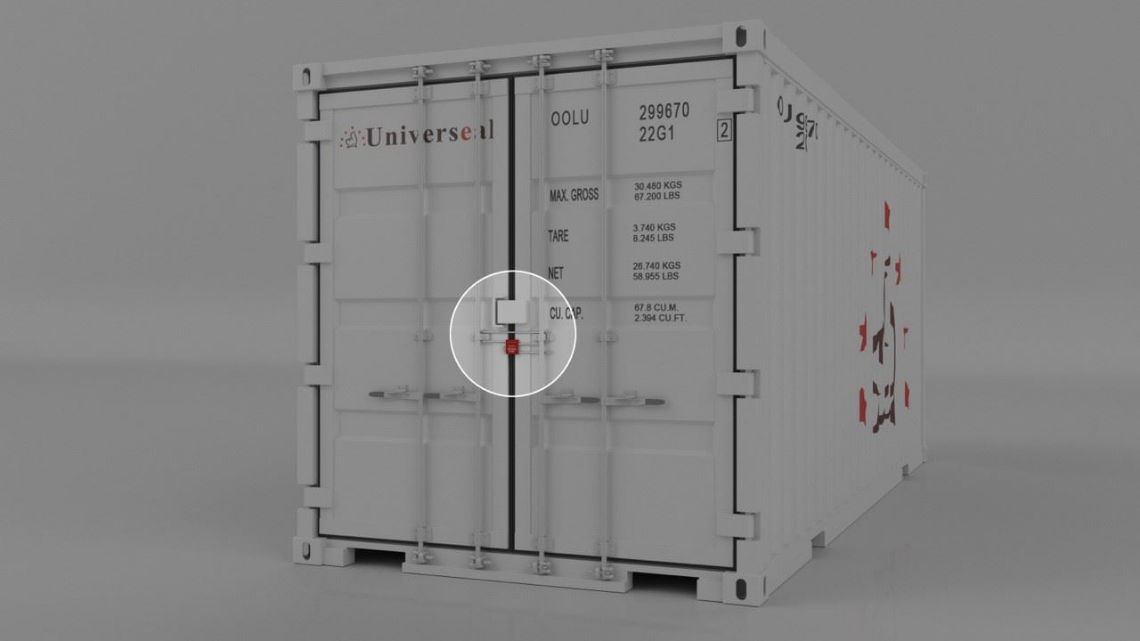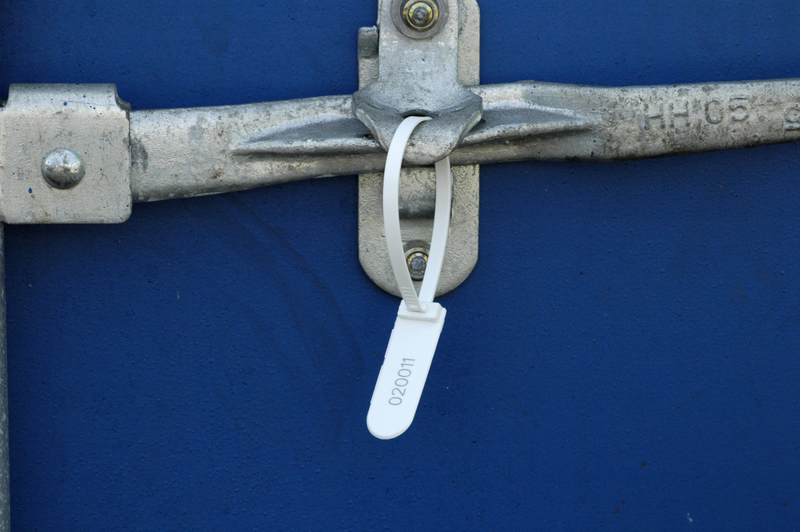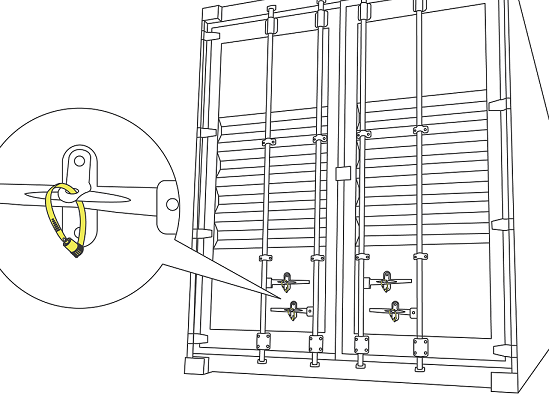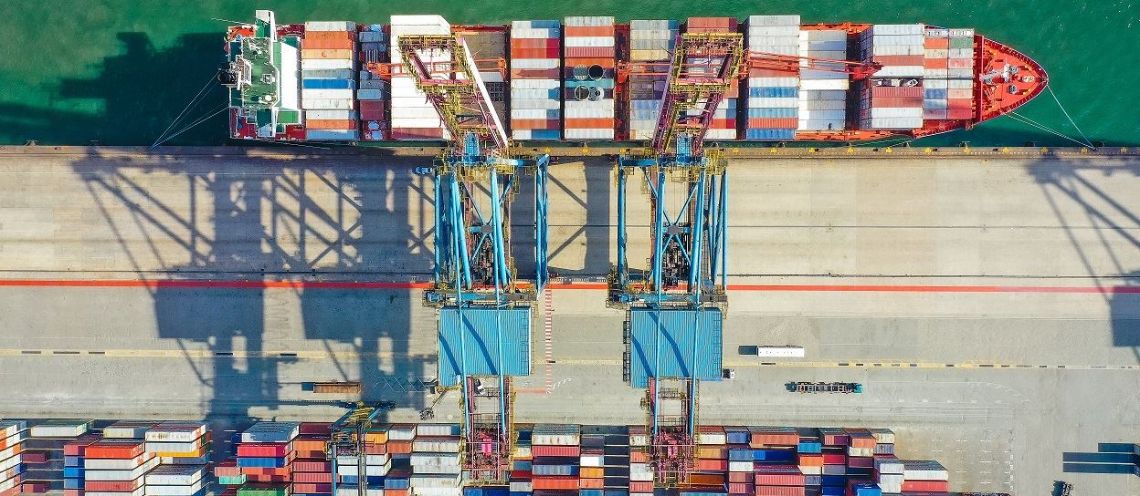Email us
Call us
01829 760000
Types of Container Seals
Most shipping containers transiting around the world will be sealed by way of a High-Security Bolt Seal, and with good reason. Bolt seals are inexpensive but strong barrier seals which cannot be opened except by application of heavy-duty bolt cutters which physically and permanently destroy a security seal, making reinstatement impossible. Bolt seals are required for international customs movements and must conform to internationally agreed standards for manufacturing good practice, strength and tamper-resistance, as stipulated under ISO17712 “High-Security” and C-TPAT Regulations.
However, bolt seals are not the only kind of security seal which can be used, and for certain types of shipments or in particular scenarios it is more suitable to use other types of security seals for sealing shipping containers, and in this guide we explain why this is the case.
| Type of CONTaiNER security seals | illustration |
|---|---|
Bolt seals are the original form of security seal for shipping containers. They are made up of two separate parts which include the bolt pin and the barrel, supplied together and with counterpart seal numbers engraved on each part. Container bolt seals are locked by pushing the pin into the barrel – the barrel has a self-locking system, and once sealed cannot be opened again; a bolt cutter must be used to open the seal, which permanently destroys the seal and makes reinstatement impossible. | 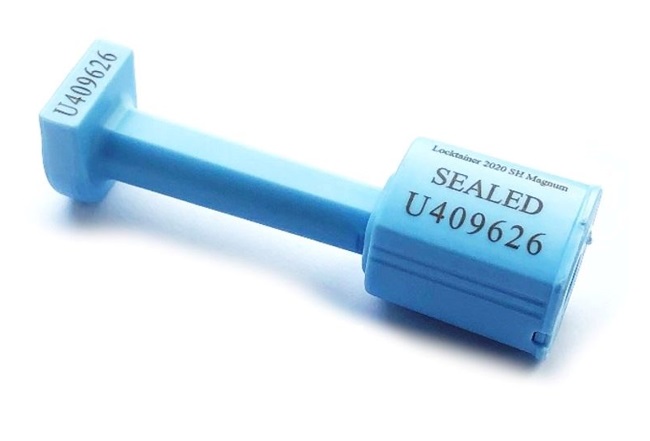 |
The Fork Seal is another type of seal fully-compliant to ISO17712:2013 HSS (high security seal) for sealing shipping containers. Fork seals provide complete wrap-around protection of container locking bars of any size and offers the highest form of container security; the strong steel can only be cut at the designated cutting point using the very heavy-duty bolt croppers. As one of the stronger barrier seals available on the market today, Fork seals are preferred by some users when sending high-value or high-target shipments globally; for example, shipments of whiskey and other high-value food & drink specialities, as well as valuable or sensitive pharmaceutical shipments. | 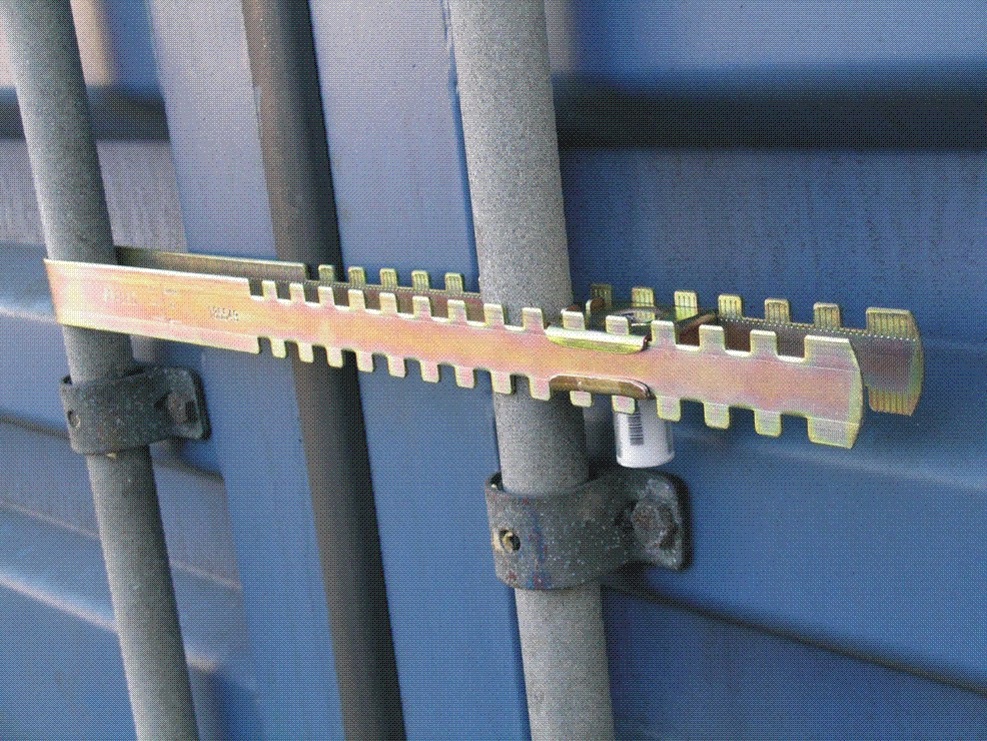 |
Cable security seals, also known simply as ‘cable seals’ or wire rope seals, are flexible and strong types of security seals. Our higher strength cable seals (>3.25mm diameter) are as suitable for high-security sealing of shipping containers as bolt seals because they conform to the same ISO17712 High Security standards. Indeed, cable seals can be a higher security solution than bolt seals, because their flexible wire construction and customisable lengths mean that they can seal around vertical locking bars, rather than through container door locking hasps/ cams, which can be susceptible to tamper attempts. As long as a cable seal is progressively tightened as tightly as possible then both doors are sealed shut and cannot be opened, regardless of any attacks on locking hasps or locking cams. Additionally, we also supply our double-locking Flexigrip 500MD, which provides two locking mechanisms within one seal, for a superior sealing solution. | 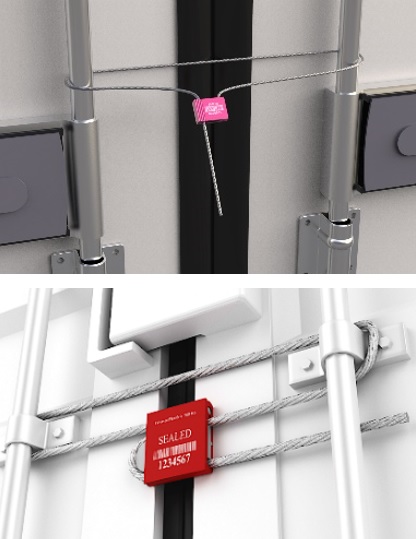 |
Our Globe seal is a robust all metal strip security seal, providing secure protection for shipments in transit, including for sealing of trailer doors and railway cars. It is a reliable and immediate indicator that goods have been received as sent. The seal features a locking mechanism totally enclosed in the head, which is secured by two independent spring rings. The seal is applied without the need of tools and is certified as an ISO17712: 2013 'indicative' classified security seal. | 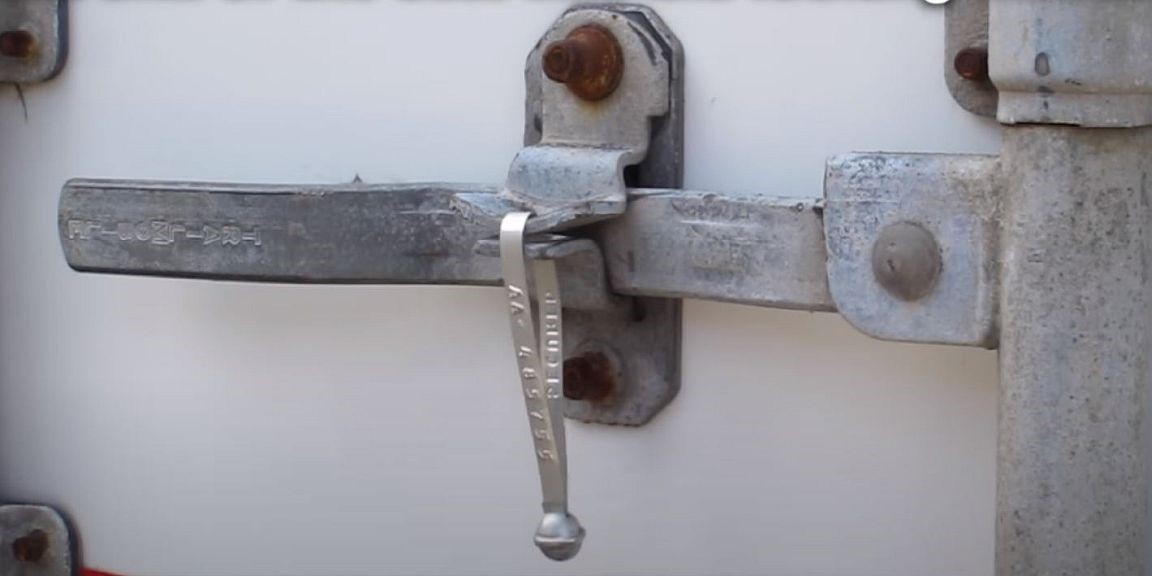 |
Plastic Security Seals for Shipping Containers Plastic seals are indicative in nature – whilst they provide clear evidence of tampering, they can easily be cut and broken, and so serve as a visual indication of tampering rather than being a barrier to entry. As such, they are often thought to not be appropriate for container security. However, this is not always the case! Shipping containers are not always under customs control; once shipping containers have arrived to port and have been customs cleared, they have entered into free circulation into the domestic market, and are making domestic onward journeys, in a similar way to road haulage trailers. Plastic security seals can then serve as a tamper-evident, easily accessible solution which continues to provide a level of security to the container, without being as heavy-duty or costly as container bolt seals. Another example is using a plastic security seal a tamper-control check on empty containers returning to depots or terminals. Popular models include our DoubleLock seals and FleetLock seals. |
|
Container Locks Keyed Container Locks are the strongest possible types of lock, because they are keyed and are designed to be used many times over many shipping container consignments. Like all keyed locks, container locks have a disadvantage in that it relies upon of appropriate security and availability of the access key; but they do have their uses in particular scenarios - please contact us should you like further information on the types of container locks we can supply. |  |
Universeal UK gains certification under HM Revenue & Customs Security Protocols
Protecting your interests whatever the Brexit forecast! Universeal UK gains Notice 205 HMRC customs acceptance for range of security seals
Following recent re-testing, we are pleased to announce the certification of three Universeal UK security seals for acceptance by HM Revenue & Customs as suitable Notice 205 customs seals. This means they have been rigorously tested in their design, construction and secure anti-tamper features to ensure that they are resistant to known attempts to defeat security seals and so gain unauthorised access to sealed road, rail and sea freight cargo whilst in transit and during customs handling.
This will enable UK and European traders to use Universeal UK accepted seals in relevant circumstances as specified in HMRC customs guidance. With the continuing uncertainty regarding the status of the border between the UK and EU member states after Brexit, the use of accepted customs seals is one way to mitigate the risks of a hard border. It will also help to ensure that ongoing international trade is as frictionless as possible: our Locktainer 2020SH bolt seal, FlexiGrip 150M cable seal and Metal Globe metal strip seal have now all been added onto the HM Revenue & Customs customs sealing acceptance list as appropriate sealing devices for Customs purposes.
The Security Seal Testing Authority (SSTA) arranges independent testing of seals under criteria laid down in the European Community’s Regulations 2454-93 Article 386 Annex 46a, together with the Security Seal Specification SSIA-98-A. H M Revenue & Customs categorize security seals into 3 groups:
Group 1: High-Security Barrier Seals
Barrier Security seals that can withstand a tensile test of 1000kgs and which have the unique reference number marked on each component in the case of two piece seals. Our Locktainer 2020 bolt seal is now Group 1 HMRC customs accepted.
Group 2: Security Barrier Seals
Barrier security seals that can withstand a tensile test of 250kgs, together with those two piece seals which, although capable of meeting the physical criteria laid down under Group 1, only have the unique number on one part. Our Flexigrip 150M cable seal is now Group 2 HMRC customs accepted.
Group 3: Indicative Security Seals
Indicative security seals, where strength is not considered a determining factor. Our Globe security seal is now Group 3 HMRC customs accepted.
Summary of Classifications
Group 1 Locktainer 2020SH Bolt Seal (also ISO17712:2013 & USA C-TPAT-approved)
Group 2 FlexiGrip 150M Cable Seal
Group 3 Globe Metal Strip seal
These models are stock items available for despatch from our UK.
In the run up to Brexit and the concerns surrounding no deal scenarios and possible delays at borders, we would recommend all freight entering or leaving the UK to be sealed with accepted trader seals to ensure the minimum amount of disruption during customs handling. The use of approved security seals which reach appropriate quality standards will also help to protect your cargos should delays cause trailers or shipping containers to be held at checkpoints or whilst stationary in queuing traffic.
The current HM Revenue Customs list is available under Notice 205, available on UK government website here: https://www.gov.uk/government/publications/notice-205-official-customs-seals-and-trader-sealing/notice-205-official-customs-seals-and-trader-sealing
Please call for more information or to discuss your security seal requirements with us.
Display
per page
